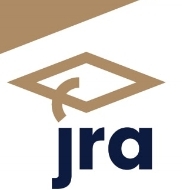How to Request College Recommendation Letters: 5 Essential Tips for Students
How to Request College Recommendation Letters: 5 Essential Tips for Students
Choosing the Right Teachers for Strong College Recommendation Letters
Most college applications require at least one recommendation letter from a teacher who knows you well. These letters play a crucial role in your application by providing insights that grades and test scores alone cannot convey. But who should you ask? This decision requires careful consideration.
5 Key Factors When Selecting Teachers for Recommendation Letters
1. Choose Teachers from Sophomore or Junior Year
Request letters from teachers who taught you recently—ideally during your sophomore or junior year of high school. These educators can speak to your current academic abilities and personal growth.
Important note: Middle school teachers are never appropriate choices, even if you took high school-level courses in eighth grade. Similarly, freshman year teachers may not fully capture your maturity and academic development, as many students experience adjustment challenges during their first year of high school.
2. Look Beyond Just Good Grades
A high grade alone doesn't make a teacher your best recommendation source. If you earned an A without much effort or engagement, that teacher may only be able to confirm what your transcript already shows—that you completed the requirements.
The most effective recommendation letters come from teachers who can provide specific examples of your:
Critical thinking skills
Classroom participation
Response to challenges
Intellectual curiosity
Growth mindset
3. Consider Teachers from Classes Where You Struggled
Don't automatically eliminate teachers from classes where you earned a B or even a C. If you demonstrated perseverance, sought extra help, showed improvement, and built a strong teacher-student relationship through your efforts, this teacher might write a particularly compelling letter.
These recommendations often highlight valuable qualities that colleges seek:
Resilience
Determination
Willingness to seek guidance
Ability to overcome obstacles
Growth over time
4. Request Letters Early with a Backup Plan
Approach teachers well before application deadlines—ideally before summer vacation begins. This timing:
Shows respect for their time
Allows for thoughtful letter preparation
Reduces their workload during busy academic periods
Waiting until October when teachers are managing full course loads significantly reduces the time they can devote to crafting personalized recommendations.
Always identify backup recommenders in case your first-choice teachers are unable to fulfill your request due to other commitments.
5. Provide Comprehensive Information
Equip your recommenders with details that will help them write effective letters:
Your intended college major or academic interests
Specific reasons you selected them as recommenders
List of colleges you're applying to and why
Notable projects or assignments from their class
Activities or accomplishments you're proud of
Brief personal statement about your goals
The Importance of Gratitude for College Recommendation Letters
When your applications are complete, express genuine appreciation to the teachers who supported you. Writing thoughtful recommendation letters requires significant time and effort—it represents their investment in your future success.
After receiving your college decisions, update your recommenders about where you'll be attending and any scholarships you received. Let them know how their teaching and support influenced your educational journey.
Remember that recommendation letters are gifts that reflect your teachers' belief in your potential. Acknowledging their contribution with sincere gratitude completes this important professional interaction.

